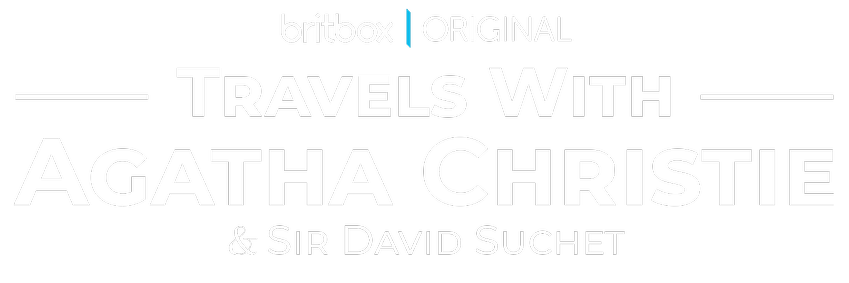Texas House Bill Seeks To Restrict Minors' Social Media Access

Table of Contents
Key Provisions of the Texas House Bill (HB 1234)
HB 1234 outlines several key restrictions aimed at limiting minors' social media use. These provisions focus on age verification, parental consent, time limits, and content filtering. Let's examine each in detail:
-
Age Verification Requirements: The bill proposes strict age verification procedures, requiring social media platforms to implement robust systems to confirm users' ages. This could involve verifying identification documents, utilizing age-verification technologies, or linking accounts to parents' verified accounts. Penalties for providing false information would likely be significant, potentially including account suspension or legal action against the user and/or their parents.
-
Parental Consent Mandate: HB 1234 mandates parental consent for minors to create and maintain social media accounts. This would involve a clearly defined process, potentially including parental verification through linked accounts or digital signatures. The level of parental involvement could range from initial consent to ongoing monitoring capabilities.
-
Time Limits and Usage Restrictions: The bill may impose daily or weekly limits on the time minors can spend on social media platforms. Specific platforms might be targeted based on their perceived risks. Enforcement mechanisms could involve platform-based time tracking and parental notification systems.
-
Content Filtering and Restrictions: HB 1234 might include provisions for content filtering, restricting access to inappropriate material such as violent content, hate speech, and sexually explicit images. The enforcement of these restrictions would likely rely on a combination of platform-based filters and parental controls.
The bill might include exceptions for educational purposes or specific communication needs.
Arguments in Favor of the Bill
Proponents of HB 1234 argue that it offers several crucial benefits:
-
Protecting Children from Harmful Content: Unrestricted access to social media exposes children to cyberbullying, online predators, and inappropriate content, potentially leading to long-term psychological harm. The bill seeks to mitigate these risks.
-
Promoting Mental Health and Well-being: Extensive research links excessive social media use to increased rates of anxiety, depression, and body image issues among teenagers. The bill aims to curb excessive usage and foster healthier online habits.
-
Empowering Parents: HB 1234 would provide parents with greater control over their children's online activities, allowing them to actively manage their exposure to potentially harmful content and interactions.
-
Improving Online Safety: By implementing stricter regulations, the bill aims to improve online safety for Texas minors, reducing their vulnerability to exploitation and harm.
Arguments Against the Bill
Critics raise several concerns regarding HB 1234:
-
Infringement on Freedom of Speech: Opponents argue that the bill could unduly restrict minors' First Amendment rights, limiting their ability to express themselves and engage in online discussions.
-
Practical Challenges of Enforcement: Implementing and enforcing the proposed restrictions presents significant challenges. Verifying ages, monitoring usage, and filtering content across numerous platforms would require considerable resources and technological solutions.
-
Impact on Technological Advancement: Some argue that the bill could stifle innovation and hinder the development of new social media technologies that could offer positive benefits for young people.
-
Effectiveness of the Proposed Measures: There's debate on whether the bill's proposed measures will actually be effective in achieving its stated goals, given the ever-evolving nature of social media and technology.
Potential Impact and Future Outlook
HB 1234's long-term effects remain uncertain, potentially impacting minors, families, and social media companies alike. The bill's passage is contingent on legislative approval and may face legal challenges. Similar legislation has been introduced in other states and countries, reflecting a broader global concern about minors' social media use. The future will likely witness further developments and discussions regarding social media regulation and child online protection.
Conclusion: The Future of Social Media Access for Texas Minors
HB 1234 represents a significant attempt to address concerns surrounding minors' social media access in Texas. While proponents emphasize the need for greater protection and parental control, critics raise concerns about potential infringement on freedoms and practical challenges of implementation. The bill's impact on Texas social media laws, child online protection, and minors' digital safety remains to be seen. It's crucial for Texans to learn more about this bill, contact their representatives to voice their opinions, and stay informed about future developments concerning Texas social media regulation for minors. Your engagement is critical in shaping the future of digital safety for Texas children.

Featured Posts
-
 Decouvrir L Integrale Agatha Christie Une Vie D Enigmes
May 20, 2025
Decouvrir L Integrale Agatha Christie Une Vie D Enigmes
May 20, 2025 -
 Travels With Agatha Christie And Sir David Suchet A Comprehensive Review
May 20, 2025
Travels With Agatha Christie And Sir David Suchet A Comprehensive Review
May 20, 2025 -
 Agatha Christies Poirot A Critical Analysis Of The Stories And Adaptations
May 20, 2025
Agatha Christies Poirot A Critical Analysis Of The Stories And Adaptations
May 20, 2025 -
 La Buena Noticia De Michael Schumacher Que Conmociono Al Mundo
May 20, 2025
La Buena Noticia De Michael Schumacher Que Conmociono Al Mundo
May 20, 2025 -
 Are You Selling On E Bay Vinted Or Depop Watch Out For Hmrc Nudge Letters
May 20, 2025
Are You Selling On E Bay Vinted Or Depop Watch Out For Hmrc Nudge Letters
May 20, 2025
